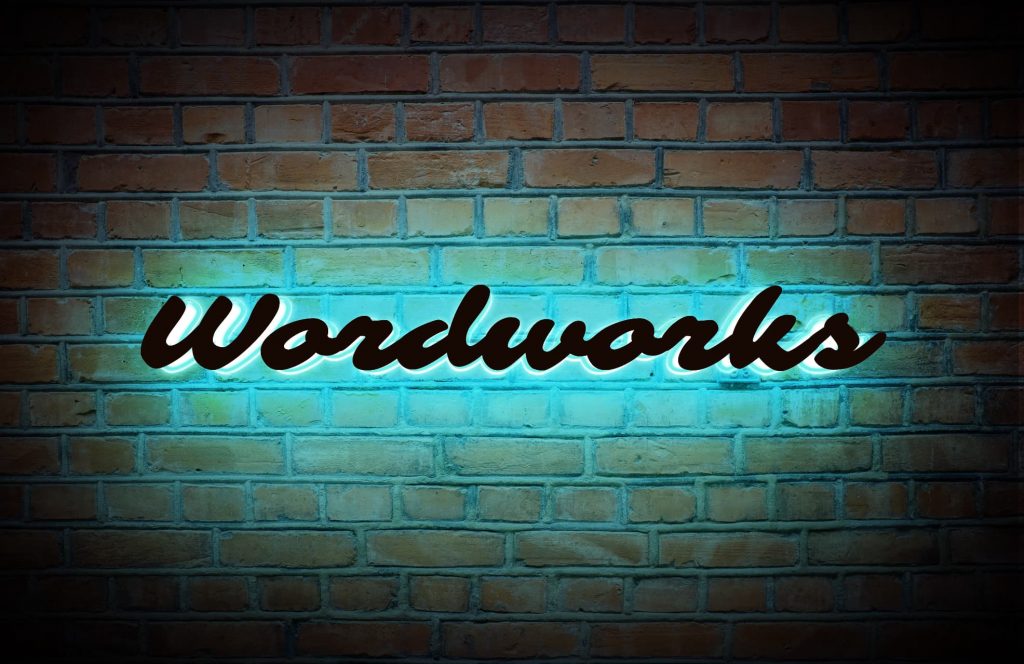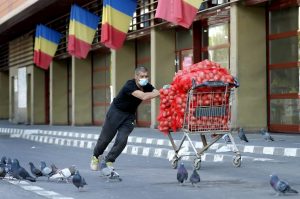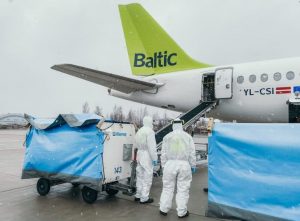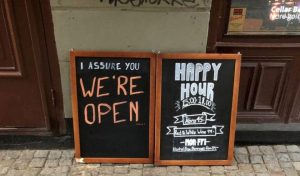Wordworks is a wonderwork or a work of wonder. In more than one way. Like most of the words ending with “-works”, it means an act of practical doing, performance and a process of creating. Wordworks is a factory making words, a mill grinding them into tiny gems, a process of dealing with words. And it, of course, is a cute wordplay. This is why I chose it for my tagline: Make your word work for you!
The following is my story. Sooner or later, everyone comes across a request or a need to say something about themselves. I have been asked so many times that I’ve decided to help out myself and those who might fancy a detail or two of, well, my story. I call it “my wordworks”. Because words mean a lot in my life and I seem to have built a career around them; because they work; and because I like the sound and the feel of it. Because it’s true. It comes out feely. So be it.
About brand, or legal, names of institutions and organisations: I have a policy about them for this non-professional account. I am using the actual names of the schools and non-profits I went to and worked for, and I am leaving out the names of my business employers.
Compared to the rest of my site content, this is a long read. So, I break it into smaller chapters:
1985–1995: Education and early career
1995–2000: Political science education “pays off”. NGOs and training programmes
2001–2004: To wordworks, frequent deadlines and first MBA
2005–2018: Going international
From 2018: Berlin
1985–1995: Education and early career
Nordic languages: St. Petersburg University
Riga, the home, the nest, the teenage years in a family of two technology engineers, my parents. My journey started there in summer of 1985. By train, just one night to the first stopover—St. Petersburg State Univerisity, in Russia.
Why Russia? Back then, in 1985, no school in Latvia offered Nordic studies and travelling from Riga to St. Petersburg was not an international journey since both Latvia and Russia were parts of one country.
In the mid-80s, very little suggested the country was readying for a mind-blowing transformation. It was still pretty much below the surface that year, when the Soviet leader, Mikhail Gorbachev, announced the policy of economic “acceleration” that became a precursor of a much more prominent “perestroika”.
When I say “very little”, I exaggerate. For those of us without the experience of political change—and none of us had this experience—nothing suggested a change coming our way. Now I know that after a lengthy lethargy, which held the country in a tight grip in the late 70s–early 80s, an awakening of any sort is bound to happen. Much has been said that Gorbachev couldn’t possibly wish for what happened next. From my perspective, his move out of the systemic stupor was just a natural and healthy human disgust at rot. I am sure everyone shared this feeling back then.
It was still the early days of the political change, and after the first year at the university, I was called up for military service. The country was experiencing shortages not only of goods in shops, modern technology in manufacturing but also of soldiers. The two years I had to spend doing the military service were quite uneventful, didn’t add anything to my skills (military or otherwise). All it did add was those two years on top of the five-year university course.
Back home
In the meanwhile, the country as I knew it was in flux and the change was in full roar, when I was headed back to my native city with a university diploma in my hand in 1992. My country, now independent, was eagerly soaking in the missing knowledge needed to develop its own statehood, economy, social services and everything a modern country may require. Latvia’s closest neighbours, the Nordic countries, were the primary and very generous source of inspiration and experience. I was hugely enthusiastic about the change and quickly engaged in larger and smaller projects that required the command of Danish—translations, interpreting, tourism. Most of 1993, I spent as a full-time interpreter and assistant on a project the Danish chapter of Save the Children international network carried out in Riga to assist local children’s homes in acquiring new skills and knowledge.
First media job
A page turned when I was accepted as a visiting student for a non-graduate course in political science at Copenhagen University. I finished it in June 1994 by handing in a thesis on my country’s transition to democracy.
The economy in Latvia was still adapting to the new reality and finding full-time employment was still largely not on the table. My short-lived encounter with the first media job as a news editor of a daily began in early 1995. I joined a newly established Russian-language section of Labrit, one of the three largest national dailies at the time.
It is appropriate to say at this point that becoming a journalist, or a writer, was an old dream of mine that I was hoping to see come true since I was still in school. I was writing for newspapers and seeing my first pieces published already then. I kept freelancing for Latvian newspapers for some years during and after university. A career of an international journalist was also the idea behind getting a university education in Nordic languages.
The first-time, full-time engagement with the media broke off four months after it started. 1995 was the year when the first financial crisis—the collapse of a major financial pyramid—struck the country’s fledgling economy. Many larger and smaller businesses went bust. So did my employer, and I had to go back to smaller engagements until a new experience emerged from around the corner in November 1995.
1995–2000: Political science education “pays off”. NGOs and training programmes
On royal radar
Danish again. But this time it was thanks to the political science course I took a short while earlier. I was invited to join a team starting up a support centre for civil society organisations, NGO Centre Riga. The support centre project was, once again, one of those assistance efforts the Nordic countries made to help their “new” neighbours to get on their feet.
Along the way up to this job, I came on the radar of the Danish Embassy in Riga. No one else but the Crown Prince of Denmark, who was studying political science at the time, was planning a visit to Riga and had been advised to have a chat with someone like me (interested in politics and somewhat relevant in the Nordic context perhaps) when there. The embassy phoned me, we agreed on a meeting in a café in Riga Old Town. I am still kicking myself for not having taken a single picture of that meeting. The time was still pretty analogous, or pre-gadget, and taking pictures was a bit more of an effort back then. And I was too shy anyway, and the prince didn’t offer, so… Yeah, I know.
NGO Centre
With that said, I didn’t have much anticipation of what to expect of the new job at the NGO Centre. Little did I know that I was in for a professional bounty. My role, titled an NGO advisor, was everything but specific. No wonder, this was my first experience in building up a new structure and staying one place for longer than a few weeks or months. This role, in which I spent four years, had four major highlights—three training programmes and an international conference, which gave me a big deal of experience, confidence, professional boost and fond memories.
It would suffice to say that the train-the-trainers, train-the-consultants and, as a result of both, the NGO School, were the first-ever efforts implemented in Latvia to develop a professionally sustainable educational infrastructure for civil society organisations. My task was to design the projects, identify the focus areas for training, find teachers (both local and international), recruit participants and make the training sessions happen. Out of forty original participants in the NGO trainers’ programme, twenty graduated six months after the beginning. Later they were joined by twenty NGO consultants who were educated in a similar manner. They together became the core of a revolving training course for civil society organisation leaders, which the NGO Centre rolled out in several support centres across the country. The international conference I already mentioned was a crown to this series. We organised it to present the experience to colleagues working in similar support organisations in other post-Communist countries.
Shortly after, financing for educational projects was running dry, and I had to leave the NGO Centre. Latvia’s civil society champion lost its original donors, all of its long-time staff members and was going through difficult times of reshuffling, reorganisation and rethinking its role. It did reinvent and rebrand itself as the Latvian Civic Alliance later and lasted for many years until it eventually had to close down not so long ago.
More training programmes
Back in 1998–1999, to keep ourselves busy, we established a trainers association, IPSA—Education for a Civil Society. It opened a chapter of voluntary work and project-based employment. I was elected the association chairman, set up a small office and engaged myself in project development. With a team of trainers, we designed a training programme on children’s rights for the State Ombudsman for Children’s Right and ran the course for several months. We also landed financing for organising an NGO trainers national conference and printing Latvia’s NGO trainers directory. I initiated these projects and was in charge of them. Working without a salary couldn’t last for too long, and I had to look for a new job.
Moving to the private sector
In early 2000, a newspaper article about a Dane starting up a business consultancy in Riga caught my eye, and I applied for a job with him, Peter. It didn’t take long for him to take me on board and entrust me with the training “department” of his business. Once again, I was joining an organisation in its formation stage, this time in business. Officially, this was my first full-time sales job, although it was not an entirely new experience as I did some selling before. I continued designing and delivering training programmes, only this time in communication and teamwork for business clients. Later that same year, I was offered a managerial job in yet another newly established company.
2001–2004: To wordworks, frequent deadlines and first MBA
Finally, I was back at what was brutally disrupted in 1995 when the newspaper where I was working went bust. I was catching up with communications.
Managing a change
In January 2001, I became a production manager at a local chapter of an international media intelligence network. It was a small but growing team of monitoring operators and analysts, who started reading papers at five a.m. and finished article summaries a few hours later. My role was to set up the process and adjust the capacity for the growing business. Essentially, the task was to introduce a change into the organisation, recruit people and introduce a new result-based compensation system. Plus upgrading the office environment and making the operators’ intense work more enjoyable. At some point, people started smiling and becoming more and more appreciative of their daily work. Besides the managerial responsibilities, I enjoyed flexing my writing muscle, as drafting summaries and editing those written by my colleagues crowned my day. This actually became the decisive factor for the next step in my career.
Writing against the clock
In summer 2002, I was offered an editor job at a business publication, called news2biz LATVIA. The job was to create content to fill all 18 pages of a bi-weekly bulletin for a Copenhagen-based company which distributed it to its international subscribers. The experience of writing against the clock sitting put in my home office was quirky and highly intense. Never before or after, did I as many phone interviews. Although the deadlines, interviewing and drafting news soon became a routine, “selling” interviews was always a challenge. I had to “pin down” the right interviewee and get them to talk about their own business with me, a member of the media. For some reason, the apparent benefits of free publicity weren’t all that appealing even for many marketing managers.
First MBA
To better understand my new trade of business reporting, I decided to step up my education and, in 2003, I joined an MBA programme at Riga Business School. Because the schedule was offering one school evening a week, the completion of each course took several months. And I was in the middle of the curriculum when I was invited to join an international organisation based in Finland and, together with my family, moved there in early 2005.
2005–2018: Going international
It was the unusually mild January 2005, when I for real embarked on my truly international journey. I was about to dive into a vast ocean of international finance. And yet again, my command of Danish came extremely handy. The organisation I joined spoke a mixture of Nordic languages at the time, all—Swedish, Norwegian and Danish—are to a great extent mutually intelligible. Becoming more and more international, my employer would a couple of years later adopt a new language policy and move towards English. All external and internal communication switched to one language.
Diversity of a comms generalist job
The thirteen years I spent at the international bank account for half of my career. Looking back at these years, I am immensely grateful for the wealth of experience and skills I gained there. Starting from diversity natural for a large organisation, the largest I ever worked in, to international travelling and meeting people of diverse professional and cultural backgrounds, working in various industries. From setting up a procedure for the disclosure of the organisation’s lending and funding transactions to planning and managing content production for my employer’s communications channels. From editing the website to improving and automating online editorial functions and saving precious hours of publishing time, and, finally, to overhauling the website’s design, architecture and whole chapters of content.
As a communications generalist on this job, I was doing a mix of everything. It’s natural that some parts were of more prominent than the other. What has shaped me as a seasoned communications professional, something that I can offer on the market to my employer or my clients as a communications advisor today? It is three areas—Content, Projects, Flexibility.
Content, Projects and Flexibility
Content production and its management require a whole set of special skills: scouting for an idea, focused research, collecting inputs, such as interviews, drafting, editing, working with imagery, and of course publishing. Content production is valued, needed and required. It is an essential part of the job. There hardly was a day when I didn’t write and edit.
Project management is another professional function and skill that I highlight as a hallmark and a major takeaway from my time at this international organisation. It is essentially a tool, a vehicle of making airy ideas tangible reality. The skillset includes staying focused, persistence and stamina of a marathon runner, seeing the final goal of the effort. It does not matter how long it takes to achieve it, a day or a year or even longer. Finally, it involves collaboration, the skill of reaching out to people within and outside one’s organisation. One explains and motivates, assigns the tasks and gives feedback. Managing improvised teams that can include several hierarchical levels is also part of the job.
Flexibility is a framework, a framing skill that encompasses content production and project management. Staying flexible is the foundation of a well-performed communications job. One has to keep one’s eyes and mind open and receptive to the changing needs of the day and the requirements of the profession. I believe this is what matters.
Flexible yet focused on the final goal, the vision of what the successful outcome looks like. The outcome is of value, the success of value creation. It’s not just a buzzword I want to plant here. At some point in life, I came to the conclusion that the promise of value creation drives me further, and the value created gives me the greatest satisfaction. It doesn’t have to be a value I can hold in my hands. It needs to be a value, however immaterial or pretty much tangible, to living souls, including myself of course. I know there’s nothing unique in it. But it doesn’t have to be more complicated than this, either.
Farewell
Rebuilding the bank’s site and launching it in spring 2018 was my farewell project at the international organisation. I wrote back then in my blog: “Now I can leave, in confidence that the bank is armed with a modern online tool, and that my colleagues will take the best care of it. There is time for everything as they say and, after [all those many years], the time has come for me to move on… I am certain the experience I gained, all the things, professional and personal, teamwork and relations, all the magic I learned is a huge fortune, an endowment for my next relationship. It will never melt.”
I was retiring from one employer, clearly, but not necessarily to from communications. Tapping my experience on a new communications job, a career change within the industry or leaving the industry and do something very different—the door stood wide open. I cherished the idea of choice. Now, at the point of a career when one would rather seek steadiness and continuity, the cogs of transition came in motion again.
From 2018: Berlin
After my last working day in Helsinki on a Friday, I had just a day to pack my suitcase to fly to Berlin on a Sunday, a day before my new MBA course was commencing. No vacation, no break. Did I like it? It was tight, and it was intense, my breath was short. Yes, I liked it.
Is it because I don’t do vacations? No, I adore time off, travelling and relaxing. But this time efficiency came first. I was hungry for a new experience. The idea was, of course, to explore a new country, meet new people, enjoy learning, something, for which I seem never to lose the taste.
German experience, in particular, was a compelling decisive factor. The largest in the EU, this country is unlike any other in the region, from where I come. The combined population and the weight of the economy of all eight Nordic and Baltic countries is just a fraction of the size of Germany, the powerhouse of Europe.
Above all, however, in making my choice in favour of joining an MBA in Berlin was the idea of kickstarting a career change. I picked a course with a special focus on public affairs to diversify my previous experience. Public affairs dominated by political communication is closely related to the industry and area of knowledge where I feel very much at home, and yet it is different and unfamiliar. I am glad I chose it and spent a year at Quadriga University.
The programme offered a lot to learn. It unveiled public affairs as part of an organisation’s ecosystem, gave an insight into building relationships with stakeholder groups. This was hugely rewarding and demanding because being a student is a taxing job. For a while, I even put this year at school in the job experience chapter of my CV. Well, also because, in my age, I was no regular student, was I? Still, thankfully, I wasn’t alone in that age bracket among the fellow students. Learning never stops, virtually. We are turning a true life-long learning society, guys. For real.
While making my baby steps of living in the unchartered territory of Berlin and Germany, an adorable and beautiful world that deserves to be experienced and loved, I was fully immersed in my studies, making room for daydreaming about my future projects. A writer? A publisher? An app builder? I was thinking. I decided on becoming a communications consultant to share my knowledge and passion with those who can benefit from my professional support. I gave it a go, built a concept and designed a website around it. Although I do what I have been practising for years, this endeavour is another steep learning curve I am climbing. I learn a lot and will continue learning for as long as I can imagine. My wordworks never stop grinding, and the journey goes on. This story added some colours to the career decisions I have been making over the years. I was a good exercise for me as it made me think about the story I want to tell. Making my words work is a tough task and requires constant rethinking and rebuilding.




19 thoughts on “My wordworks”
La weekly naturally like your web site however you need to take a look at the spelling on several of your posts. A number of them are rife with spelling problems and I find it very bothersome to tell the truth on the other hand I will surely come again again.
Hey, Jack here. I’m hooked on your website’s content – it’s informative, engaging, and always up-to-date. Thanks for setting the bar high!
GlobalBllog I really like reading through a post that can make men and women think. Also, thank you for allowing me to comment!
Mangaclash I do not even understand how I ended up here, but I assumed this publish used to be great
Rely on BWER Company for superior weighbridge solutions in Iraq, offering advanced designs, unmatched precision, and tailored services for diverse industrial applications.
Your article helped me a lot, is there any more related content? Thanks!
Your point of view caught my eye and was very interesting. Thanks. I have a question for you.
Your article helped me a lot, is there any more related content? Thanks!
Your point of view caught my eye and was very interesting. Thanks. I have a question for you.
Thanks for sharing. I read many of your blog posts, cool, your blog is very good.
Thanks for sharing. I read many of your blog posts, cool, your blog is very good.
Can you be more specific about the content of your article? After reading it, I still have some doubts. Hope you can help me.
Thank you for your sharing. I am worried that I lack creative ideas. It is your article that makes me full of hope. Thank you. But, I have a question, can you help me?
hentaifox You’re so awesome! I don’t believe I have read a single thing like that before. So great to find someone with some original thoughts on this topic. Really.. thank you for starting this up. This website is something that is needed on the internet, someone with a little originality!
I don’t think the title of your article matches the content lol. Just kidding, mainly because I had some doubts after reading the article.
Thank you for your sharing. I am worried that I lack creative ideas. It is your article that makes me full of hope. Thank you. But, I have a question, can you help me?
Can you be more specific about the content of your article? After reading it, I still have some doubts. Hope you can help me.
Thank you for your sharing. I am worried that I lack creative ideas. It is your article that makes me full of hope. Thank you. But, I have a question, can you help me?
Thank you for your sharing. I am worried that I lack creative ideas. It is your article that makes me full of hope. Thank you. But, I have a question, can you help me?